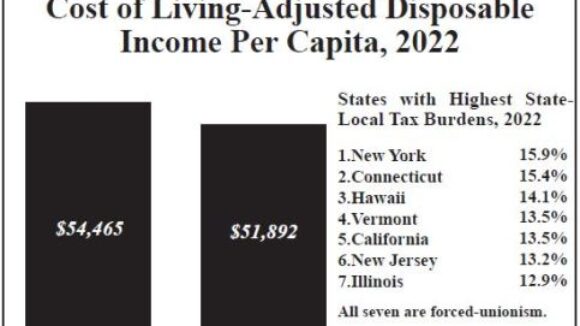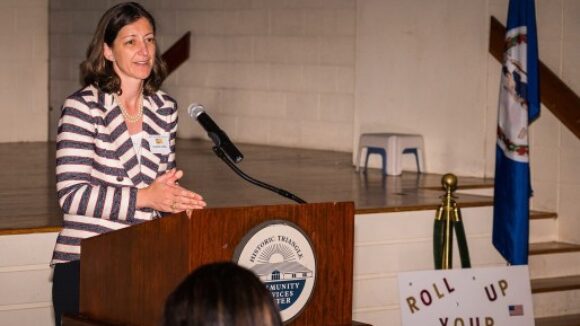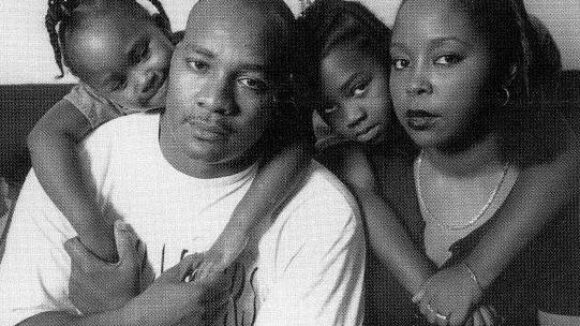Real Incomes Higher in Right to Work States
One reason why spendable income is higher in Right to Work states is forced-dues states’ substantially higher state-local tax burdens.
Writing on the WorkplaceChoice.org web site (see the link below), Trey Kovacs of the Competive Enterprise Institute discusses two reform measures recently introduced in Congress by U.S. Rep. Tom Price (R-Ga.).
The Freedom from Union Stalking Act (H.R.2472) and the Freedom from Union Identity Theft Act (H.R.2473) are designed to prevent pro-forced unionism activist judges around the country from concocting new special legal privileges for Big Labor. The National Right to Work Committee is now mobilizing grass-roots support for both H.R.2472 and H.R.2473.
As Kovacs explains, these bills amend the National Labor Relations Act (NLRA) to “remove any misunderstanding” that federal labor law “exempts unions from state stalking and identity theft laws.”
Such legislation is sadly necessary in the wake of Fisher v. Communications Workers of America, in which two North Carolina courts ruled that the NLRA preempts a Tarheel State law “that declares identity theft a criminal offense”:
The case involves . . . Communications Worker of America Local [3602] . . . . [In the fall of 2007, union President] John Glenn posted the names and social security numbers of 33 AT&T employees, who chose to revoke their union membership, in a public area at the company’s North Carolina facility.
Receiving free legal aid from the National Right to Work Legal Defense Foundation, 16 of the employees whose personal information was publicly revealed sued Local 3602 and its parent unions under the Tarheel State’s Identity Theft Protection Act (ITPA). Incredibly, however, both the original trial court and the North Carolina Court of Appeals found that, since Mr. Glenn’s obvious goal was to retaliate against employees for exercising their right to forego union membership, he and the union are entitled to special exemptions from being subjected to the ITPA’s stringent penalties.
H.R.2473 would deter union bosses in the future from abusing independent-minded employees the way John Glenn did. And H.R.2472 would establish that, contrary to what union bosses claim, federal labor law does not entitle union organizers to follow “work vehicles to employees’ homes” and wait “for them to leave and possibly travel to another job site.”
Kovacs concludes with a quote from Congressman Price:
“America’s workers should be able to do their jobs in an environment that is free of intimidation and coercion. Frankly, it is absurd that these practices are not already explicitly outlawed.”

One reason why spendable income is higher in Right to Work states is forced-dues states’ substantially higher state-local tax burdens.

After freedom-loving Virginia constituents were informed about Congresswoman Elaine Luria’s votes to destroy Right to Work laws in their state and…

Glacier Northwest Inc. v. International Brotherhood of Teamsters Local 174 has been brought before the Supreme Court.